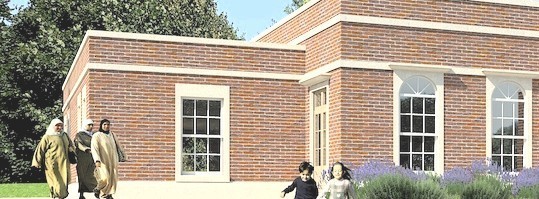 Salamun alaykum
Salamun alaykum
Dhulqa’dah: The sacred month:
It is the first of the four Ash-hurul hurum -sacred months- mentioned in Noble Quran.
“Indeed the number of months with Allah is twelve months in Allah’s Book, the day when He created the heavens and the earth. Of these four are sacred. That is the upright religion. So don’t wrong yourselves during them..” Sura At-Tawba (9:36).
Ash-hurul hurum are Muharram, Rajab, Dhulq’adah and Dhulhijjah.
Sayyid Ibn Tawoos (ra) narrated in a hadith that the month of Dhulqa'dah is the realm for supplications being responded on encountering a problem. Sheikh Ali bin Ibrahim al-Qummi reports that during these sacred months the recompense for good deeds and punishment for bad deeds is amplified.
Its observance:
Ash-hurul hurum was a practice set up by the Prophet Ibrahim. The act of war or raids was prohibited amongst the people during the period of these four months to uphold the sanctity of Ash-hurul hurum. During these sacred months the activity was on travelling towards Makka for performance of the devotions of haj at the K’aba.
The concept of Ash-hurul hurum implies that in the absence of conflict or war, and then salam or peace prevails. Therefore, in addition to deriving the spiritual blessings of the sacred month, this devout period can be understood that these are opportunities to search for peace; both for one’s self, family and with others in the community. Essentially peace is an invaluable ingredient for success and happiness for the individual and community level.
Peace: An obligation:
By being cognisant of the purpose of creation is to serve Allah SWT, Muslims are obliged to always promote peace at all levels. Indeed, the linguistic origin of the name of the noble religion Islam testifies to this. Even the recitation of the final three statements of salam/greetings, following tashahud, whilst completing the salat-prayer- underscores this obligation.
The best manners:
Once the noble Prophet posed a question, “Shall I inform you of the best etiquette of the people of this world and the hereafter?”
“Yes, O the Messenger of Allah,” responded the audience.
The noble Prophet explained, “It is to spread peace in the world.”
Would you not like to have the best etiquette of the people of this world and the hereafter?” The answer would definitely be a resounding YES!
Therefore, the questions that follow are:
- How are you promoting peace within your own self?
- What is it that you need to do to spread peace in the family, community, locality, nationally and globally?
Wa ma tawfiqi illa billah
With salaams and duas,
Fazle Abbas Datoo
This email address is being protected from spambots. You need JavaScript enabled to view it.
Resident Alim
Wessex Shia Ithna Asheri Jamaat
